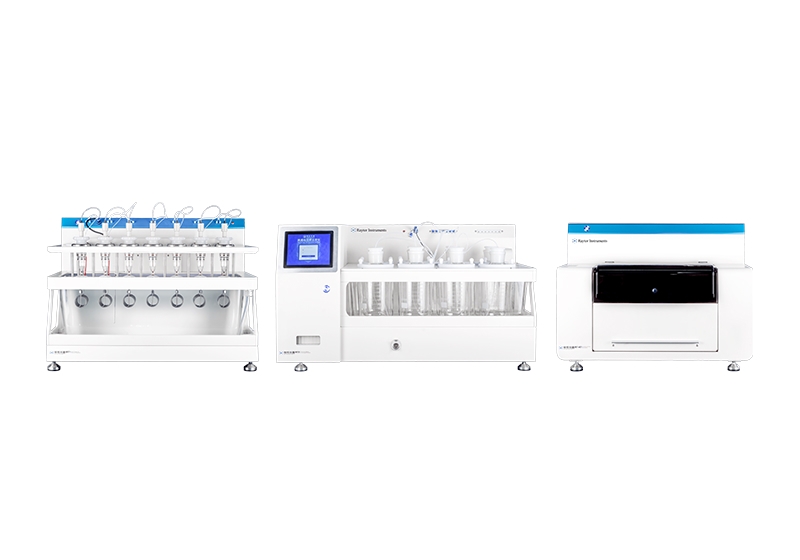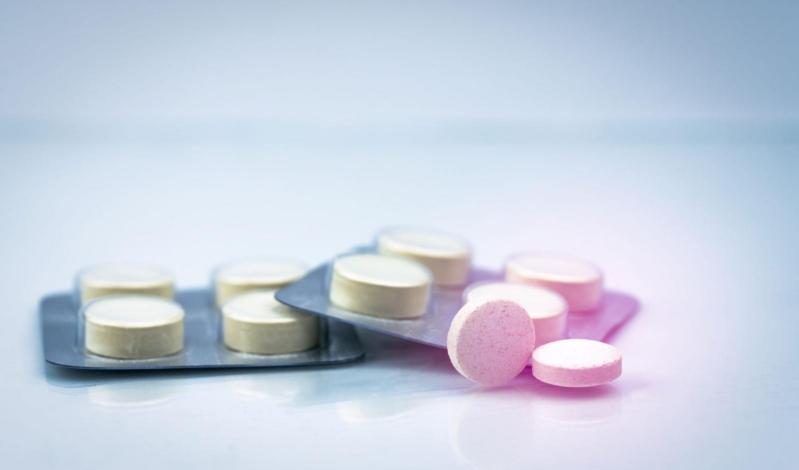The Role of Dissolution Testing in the Dissolution of Sustained-Release Tablets
2025-03-23
Sustained-release tablets are commonly used in modern medicine to regulate the controlled release of drugs into the body over an extended period. These tablets provide longer-lasting effects, reducing the need for frequent dosing. But how can we be sure these tablets function as intended? This is where dissolution testing plays a vital role. Dissolution testing ensures that the tablet releases its active ingredient at the correct rate and at the right time. Without this critical testing, how can we confirm that the medication will produce the desired effect and work as expected within the body?

What Are Sustained-Release Tablets?
Definition and Purpose of Sustained-Release Formulations
Sustained-release tablets are specially designed to deliver medication gradually over a period of time, providing a controlled and consistent release of the drug into the body. Unlike immediate-release tablets, which release all their active ingredients at once, sustained-release tablets are formulated to extend the release, helping maintain the drug’s therapeutic effect for a longer duration. This feature is particularly useful for chronic conditions where continuous drug action is required. By ensuring the drug remains effective throughout the day, sustained-release formulations reduce the need for frequent dosing, making treatment regimens more manageable for patients.
Benefits Over Immediate-Release Tablets in Long-Term Treatments
Sustained-release tablets offer significant advantages over traditional immediate-release tablets, particularly in long-term treatments. One of the primary benefits is the ability to maintain steady drug levels in the bloodstream, avoiding the peaks and valleys that can occur with immediate-release forms. This controlled release can minimize the risk of side effects that often accompany fluctuating drug concentrations. For instance, medications that can cause sedation or gastrointestinal discomfort when taken in high doses can be more easily tolerated when released gradually. Additionally, because patients need to take fewer doses throughout the day, sustained-release tablets improve patient adherence to treatment plans. The convenience of reduced dosing schedules often leads to better compliance, ultimately enhancing the effectiveness of the treatment.
The Science Behind Dissolution Testing
Overview of Sustained-Release Medicine
Sustained-release medications are engineered to release their active ingredients over an extended period. This slow release can occur at a controlled rate, allowing for a more predictable therapeutic effect. The process of dissolution, in which the drug dissolves in the body’s fluids, is central to how sustained-release formulations work. Typically, the release is not constant but designed to maintain therapeutic levels over a prolonged period, which helps in managing chronic conditions with fewer dosing intervals. The dissolution rate, and how well the tablet releases its drug, plays a crucial role in ensuring the tablet performs as intended in the body.
Experimental Parameters and Dissolution Apparatus
Dissolution testing is an essential part of developing and verifying the performance of sustained-release tablets. One common apparatus used for this purpose is the RT7 Flow-Through Cell Dissolution System. This system is designed to measure the dissolution rate of solid oral dosage forms, such as tablets and capsules, under controlled conditions. The RT7 system uses flow-through cells set at a diameter of 22.6 mm and maintains a temperature of 37°C ± 0.5°C, which simulates the conditions inside the human body. By monitoring the rate at which the drug dissolves, researchers can assess whether the tablet releases its active ingredient at the correct rate and within the appropriate time frame.
Conclusion
The RT7 Flow-Through Cell system is instrumental in ensuring consistent, reliable testing of sustained-release formulations. By providing accurate and reproducible data, it enables manufacturers to optimize their formulations and ensure that each tablet behaves as expected. The system plays a vital role in maintaining product quality and helping companies meet regulatory standards.
RT700 Flow-Through Cell: Advancing Dissolution Testing Techniques
Overview of the RT700 Flow-Through Cell Dissolution System
The RT700 Flow-Through Cell Dissolution System offers a sophisticated solution for testing the dissolution of sustained-release formulations, liposomal drugs, and suspensions. Designed for versatility and precision, the RT700 system can handle both open-loop and closed-loop sampling, accommodating a wide range of dissolution testing requirements. This flexibility is crucial in ensuring that a variety of medications, including complex formulations, are tested under consistent and controlled conditions. The system’s ability to provide accurate, real-time data makes it a valuable tool for pharmaceutical research and production.
Key Function
The RT700 system is equipped with seven flow cells, enabling detailed analysis of multiple samples simultaneously. This feature is particularly beneficial for testing complex formulations that require varied testing conditions. The system also supports dual flow rate testing, which allows for the examination of how different flow rates influence drug dissolution. Real-time monitoring of temperature is provided by an integrated heating and stirring device, ensuring that the system maintains the ideal testing environment. Additionally, the patented filtration method employed by the RT700 minimizes back pressure, ensuring optimal flow and accurate sampling throughout the process.

Key Features of RT700
Dual Flow Rates and Real-Time Monitoring
The RT700 system stands out due to its ability to conduct tests at two different flow rates simultaneously. This dual flow capability allows for comprehensive testing under varying conditions, which is especially important for formulations that may behave differently under different physiological conditions. Each of the seven flow cells is independently controlled, ensuring that each sample undergoes precise and tailored testing. The system also includes independent temperature sensors for each channel, which ensures real-time, accurate monitoring of the testing environment.
Compliance and Durability
Designed to comply with international pharmacopoeia standards, the RT700 system uses high-quality materials such as Teflon pipes that are chemically stable and resistant to adsorption. This resistance prevents any residue from contaminating the samples, ensuring the accuracy of results. The system also comes with specialized sample racks that support a variety of sample containers, including 70mL sample bottles, 10mL test tubes, and liquid-phase vials, meeting the diverse needs of dissolution testing.
High Precision and Efficient Filtration
The RT700 system is equipped with a high-precision constant flow pump that operates in both nonpulsating and pulsating modes. This flexibility is essential for testing different types of formulations that may require different flow profiles. Additionally, the system includes an overpressure protection and leakage detection system for each channel, ensuring the integrity of each test. The filtration system’s patented design reduces back pressure, allowing for efficient and consistent sample processing.
Filtration Membrane Diversity
One of the standout features of the RT700 system is its ability to accommodate a variety of filtration membranes, each with different materials and pore sizes. This diversity ensures that the system can handle a wide range of sample types, from simple solutions to more complex formulations like liposomes or suspensions. The flexibility in filtration helps to maintain optimal flow conditions and ensures that the dissolution process is as efficient as possible.
Applications of Dissolution Testing
Ensuring Quality in Drug Production
Dissolution testing is vital to ensuring the quality and consistency of drugs during production. The RT700 system improves the correlation between in vitro (lab-based) and in vivo (real-world) results, providing a more accurate prediction of how a drug will perform in the human body. It also enhances the discrimination between different formulations, allowing for better differentiation of dissolution profiles. These advantages make the RT700 system especially valuable in the research and development phase, where predicting bioavailability can be challenging.
Success Stories in Pharmaceuticals
Several pharmaceutical companies have successfully employed the RT700 system to improve their product development processes. The system has been used for sustained-release tablets, soft capsules, suspensions, nanochips, and even eye drops, demonstrating its versatility across a wide range of drug types. These success stories highlight the importance of precise dissolution testing in developing high-quality medications and improving patient outcomes.
Unlock Precision in Dissolution Testing with RT700
The RT700 Flow-through Cell Dissolution System is designed for accuracy. It tests sustained-release products, suspensions, and liposomal drugs. This system allows flexible testing with both open-loop and closed-loop operations. It uses seven flow cells for precise analysis. The system has real-time temperature control. It also features patented filtration to reduce back pressure. The RT700 is compliant with pharmacopoeia standards. It ensures reliable results for your drug testing needs. Choose RT700 for better, more accurate dissolution testing. Get the precision you need in your research and production.



